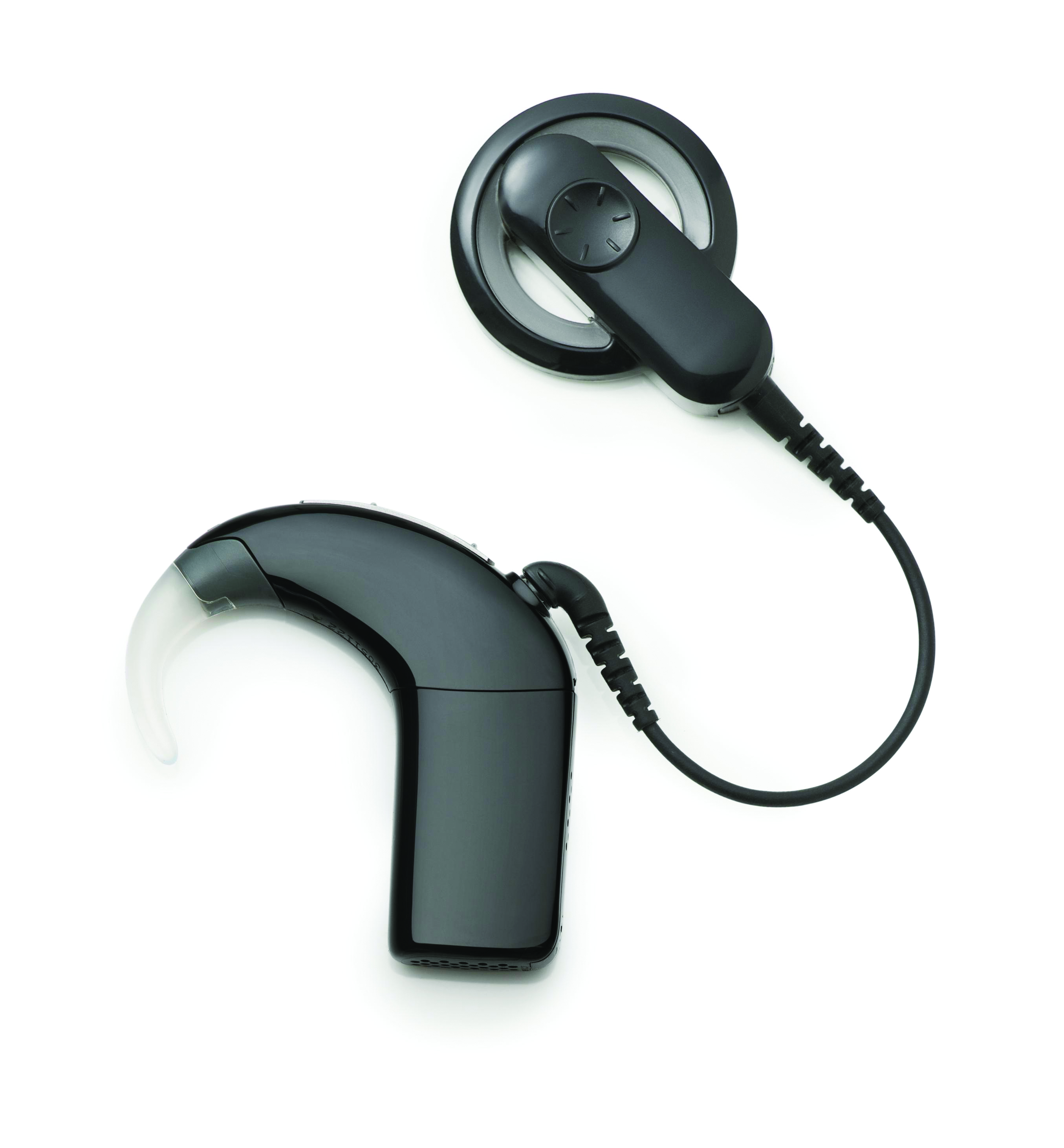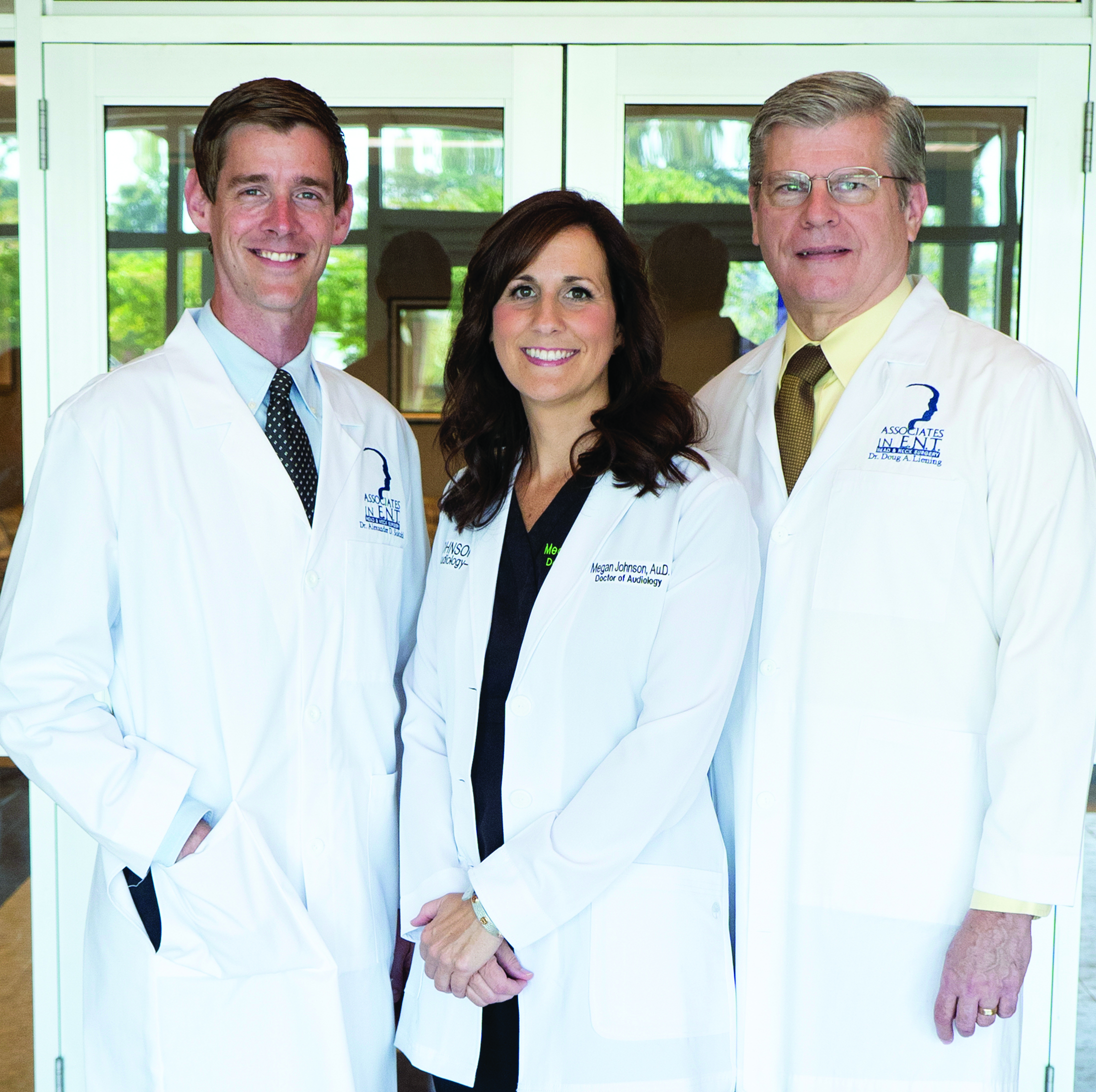Two Chattanooga practices that offer hearing healthcare services, Johnson Audiology and Associates in ENT, have teamed up to give citizens in the greater Chattanooga area a complete continuum of care for cochlear implantation.
Megan Johnson, Au.D. and owner of Johnson Audiology, explains, "Since 2017, Johnson Audiology has provided support for cochlear implant patients by way of initial diagnostic evaluation and ongoing follow-up care." Johnson has been an audiologist for more than 17 years and her experience as a cochlear fellow began as soon as she embarked on her career.
While diagnostic and follow-up care for cochlear implants are services that have been available for several years for those living in the Scenic City, the actual cochlear implantation has been a surgical procedure that patients had to travel to Vanderbilt Hospital in Nashville or Emory Hospital in Atlanta to receive.
Beginning this month, however, Chattanooga otolaryngologists Doug Liening, M.D., and Alex Sokohl, M.D., both with Associates in ENT, will begin performing the implantation surgery at Memorial Hospital in Chattanooga. "Now patients will be able to accomplish every step of the cochlear implantation process right here close to home," Liening says. "We are thrilled to be working with Dr. Liening and Dr. Sokohl to offer this opportunity locally," Johnson says.
Cochlear implants, which were approved by the U.S. Food and Drug Administration (FDA) more than 30 years ago, are surgically implanted devices that provide sound representation to people who cannot benefit from hearing aids. The implants do not cure hearing impairment, but the device does directly stimulate the auditory path. So, unlike hearing aids, which make sound louder, cochlear implants replace the function of the damaged inner ear to provide sound signals to the brain for processing.
Cochlear implants have come a long way since the first recipient of the earliest version of the technology received an implant in 1977. In the more than 40 years since that revolutionary milestone, the precision of this technology and the process have been fine-tuned, and more than 500,000 people with hearing loss have benefited from cochlear implants worldwide. As is often the case when technology advances, the devices are now smaller and smarter. They are comprised of two components, which work like this:
1) Internal electrode array. The internal electrode array is implanted by an ear, nose and throat surgeon, also called an otolaryngologist, into the inner ear.
2) External sound processor. The microphones on the external sound processor detect sounds and transfer those sounds through the skin to the internal electrode array. Two options are available for the external sound processor: a behind-the-ear option that sits atop the ear and looks similar to a traditional behind-the-ear hearing aid and an off-the-ear option.
The internal electrode array then stimulates the auditory nerve directly and transmits the sound to the brain for processing.
For adults of all ages, cochlear implants are a hearing loss solution for those with moderate to profound sensorineural hearing loss, also referred to as nerve hearing loss, who are receiving limited benefit from hearing aids, such as those who only hear half of what is said in a conversation. Cochlear implantation has become the established treatment for children as young as 12 months who have severe to profound sensorineural hearing loss.
Liening mentions, "The impact of hearing loss in the United States is substantial, with almost 50 million Americans affected. Studies show that nearly two million Americans could be candidates for cochlear implant technology yet only 5 percent of patients who could benefit have been treated."
Johnson says, "The first step to determining if a person is a candidate for cochlear implantation is to schedule a diagnostic hearing evaluation and consultation with an audiology practice that specializes in cochlear treatment. Cochlear implants are covered by Medicare, many insurance plans and typically by Medicaid. However, those interested in cochlear implantation need to be aware that the FDA has set specific guidelines that audiologists and ENT surgeons much follow to determine a person's candidacy. What that means is that a patient cannot self-determine candidacy."
An audiologist with specialized training in conducting cochlear implant diagnostic evaluations performs the audiogram. The testing is performed with appropriately fit hearing aids. The results of the test are key to the person's candidacy for cochlear implantation. For instance, one measurement tests for a person's understanding of speech in quiet and/or background noise. If hearing aids are effective, cochlear implantation is taken off the table as an option.
For those who are candidates for cochlear implants, the technology can be life changing. Ron Farwig of Ocoee, TN, and a patient at Johnson Audiology, says it has made a huge difference in his life in many ways. Farwig received his single cochlear implant in 2000. He says his hearing loss first began after a bout with the mumps when he was a youngster, and exposure to loud aircraft noise during a lifelong career in aviation further damaged his hearing. He says the final straw was in 1999 when he had back surgery, and the pain medication he was prescribed permanently damaged his hearing. "I needed my sense of hearing to continue working so I chose to move forward with the implant. I hear and understand very well with the single implant. I wear a strong hearing aid on the other ear for sound localization and balance."
Farwig has never regretted his decision to move forward with the cochlear implant. He says, "Life is better with the implant. While my hearing is not perfect, I do hear and understand words, enjoy music again and can talk on the phone."
He stresses that having confidence in your surgeon is key. He also understands that having a strong partnership with his doctor of audiology is paramount. "I have been seeing the audiologists at Johnson Audiology for my ongoing follow-up and mapping appointments for several years. It's nice to have an audiologist with cochlear experience close by, and having ENT surgeons who perform the implants here in Chattanooga is a real leap forward for cochlear implant patients."
FOR MORE INFORMATION
Call 423.710.1432 or 423.267.6738. Visit www.johnsonaudiology.com or www.myentonline.com

